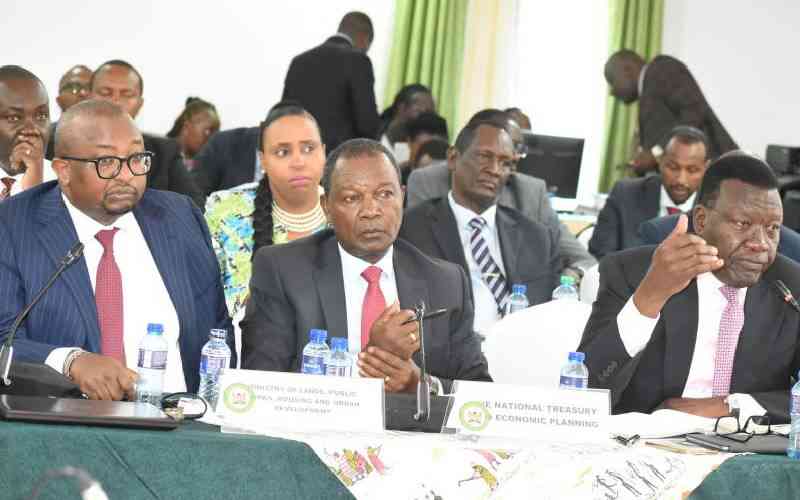×
The Standard e-Paper
Kenya’s Boldest Voice

Treasury Cabinet Secretary Njuguna Ndung'u has said the way to save Kenyans from the grip of a choking economic environment is by nurturing markets and supporting the manufacturing and housing sectors.
Ndungu also highlighted the importance of developing tax policies that do not distort market demand or hinder growth.